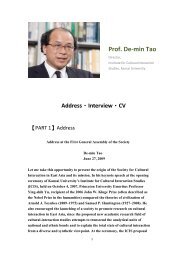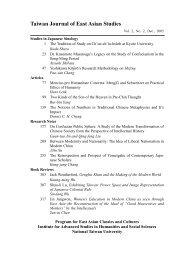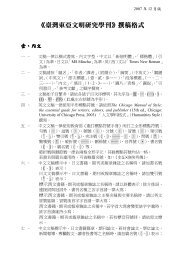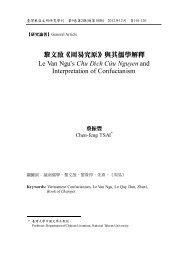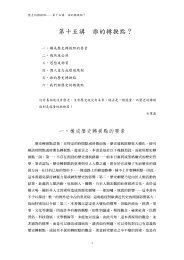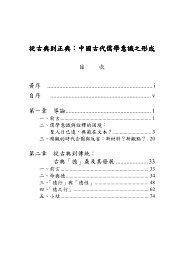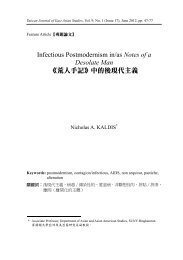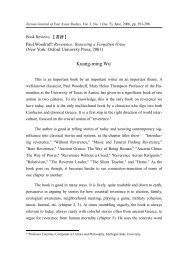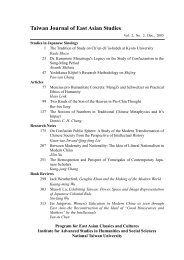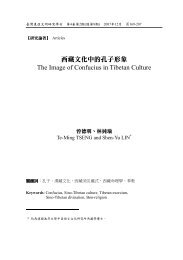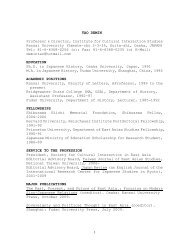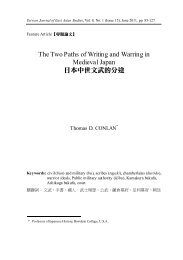臺灣東亞文明研究學刊 - 東亞經典與文化研究計畫 - 國立臺灣大學
臺灣東亞文明研究學刊 - 東亞經典與文化研究計畫 - 國立臺灣大學
臺灣東亞文明研究學刊 - 東亞經典與文化研究計畫 - 國立臺灣大學
Create successful ePaper yourself
Turn your PDF publications into a flip-book with our unique Google optimized e-Paper software.
222 Taiwan Journal of East Asian Studies, Vol. 4, No. 2 (Iss. 8), Dec., 2007<br />
The basis for this universalism is the concept of humankind as an empirical<br />
dimension of historical experience on the one hand and a normative value on the<br />
other. The efforts to give this comprehensive idea of humankind an inclusive feature<br />
will lead to new approaches to respecting and recognizing other cultures. Europe<br />
has brought about elements of such a historical culture of recognition: In the field of<br />
Fine Arts the idea of its aesthetic nature has led to a universal attitude of<br />
recognizing varieties, differences and changes. Nobody in Europe could violate his<br />
or her European identity by admiring Chinese art, literature or philosophy. And the<br />
same is true in the other direction.<br />
But this aesthetization in the interrelationship of cultures is limited. It diverts<br />
cultural difference away from the hard facts of political struggle for power and<br />
similar non-aesthetic features of human life. Therefore we need further steps into a<br />
culture of recognizing cultural difference. An important step in this direction<br />
reaches beyond an aestheticized reality. It has been taken in Europe by anchoring<br />
the idea of equality in the depth of its political culture. Equality is an abstraction<br />
from differences, but it is a logical presupposition for recognition of otherness. The<br />
next step would be to approach this difference in a further developed humanistic<br />
concept of humankind. There difference itself is considered a mode of realizing the<br />
same universal (humankind) under different conditions in different ways which can<br />
be called individual. The look at cultural difference as result of individualization of<br />
humankind in time and space brings this difference into an interrelationship, which<br />
is guided by recognition. In order to become able for such a recognition one<br />
condition must be fulfilled: We must be able to understand the others in their<br />
difference. Here I see another European achievement: It is the hermeneutical<br />
approaches of the humanities to culture.<br />
Indeed, in the realm of the humanities we are confronted with the intellectual<br />
task of keeping up universalistic criteria like truth claims in our cognitive work.<br />
Under such criteria we are tackling the manifold varieties of human culture not in<br />
an attitude of neutrality. Such neutrality is impossible by epistemological reasons,<br />
xiv



